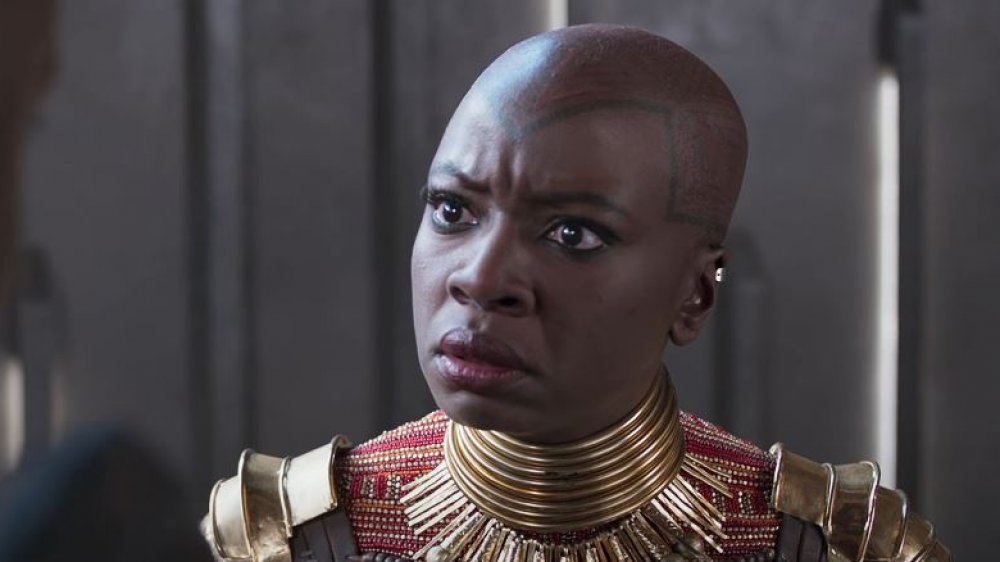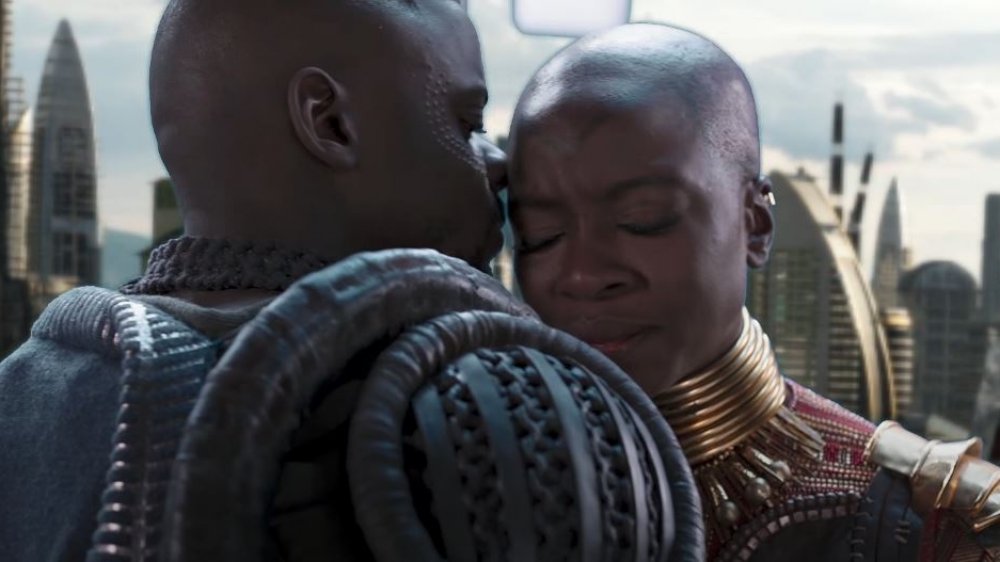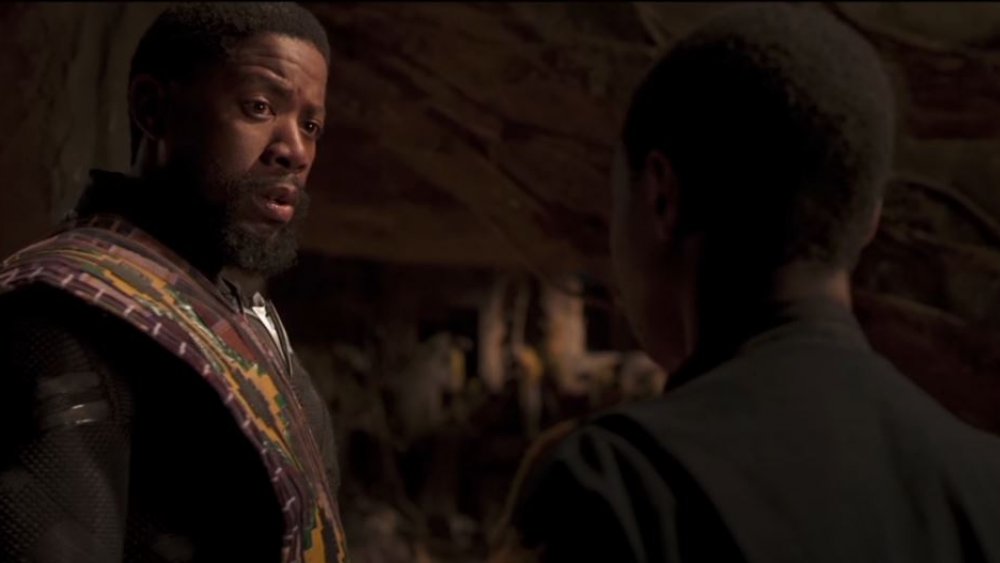Why This 'Painful' Scene Was Cut From Black Panther
While Marvel films just seem to get bigger and bigger with every passing year, Black Panther continues to stand above its contemporaries. A record-breaking success, a pop culture phenomenon, an Oscar nominee for Best Picture, and a film that shattered barriers across the world, this 2018 superhero movie was about as artfully designed as comic book cinema could ever hope to be. Within just over two hours, Black Panther packs in enough world-building for an epic fantasy trilogy, introduces dozens of memorable characters, adapts multiple comic book story arcs, and sends the audience home with a powerful, socially relevant message that can't be forgotten.
Before Black Panther was a finished film, though, it was a script, a camera, and a whole bunch of scenes that needed to be strung together. Editing is one of the most underappreciated aspects of film production, in general — no matter how good your material is, keeping the pace tight means being ruthless about which scenes matter and which don't, even if the unnecessary ones are wonderful. Hard choices are required. In a 2018 press interview, director Ryan Coogler said that there was one scene in particular, set in the wake of T'Challa's apparent death, that he was "incredibly proud of," but which he simply couldn't fit into the film.
Black Panther had a lot of story to cover, and one phenomenal sequence had to go
Now, Coogler talks this scene up for a reason. Set in the Wakandan citadel, high above the city, it depicts Okoye (Danai Gurira) and W'Kabi (Daniel Kaluuya) in a tense verbal confrontation over Killmonger's takeover of Wakanda, which has resulted in T'Challa's apparent death. The two of them, both loyal to Wakanda above all else, are split in regard to Killmonger's goals. Aside from the phenomenal acting by both performers, this scene also showcases the characters as individuals, as leaders, and as two people in a marriage — split by political strife, but still in love.
In an interview with The Wrap, Black Panther editor Michael Shawver, who has been working with Coogler since their film school days, described this terrific sequence as the one scene that was most heartbreaking to cut from the film. "Toward the end, after things go bad and Killmonger is in control and all that, we're talking about, what are they going to do?" Shawver recalled. "What is Wakanda going to become? ... Those are two powerhouse actors and it was an incredible scene with so many layers to it — boyfriend and girlfriend, it was general and her advisor, all those things. That was painful."
That said, both he and Coogler agreed that it had to go. As Shawver put it, film editing requires being hyper-aware of moments where the audience might lose immersion. "At that point in the movie, it's about two thirds through, and that's when most movies drag. Ours was taking a while to get to that point."
This wasn't the only Black Panther scene that didn't make the cut
Of course, while Black Panther might seem like a near-perfect film, the Okoye-W'Kabi scene wasn't the only great moment to go splat on the cutting room floor. Another sequence that hurt to cut out, according to Shawver, was "a scene between Chadwick [T'Challa] and Forest's [Zuri] characters which sets up their relationship. It sort of lets you attach yourself to their father-son dynamic so that later on in the film... you really feel more."
Coogler and company also made the tough decision of cutting a great emotional beat between T'Challa and his real father, T'Chaka, as highlighted by SlashFilm. This scene is a flashback, set immediately after the events in the opener — wherein T'Chaka kills Killmonger's father, N'Jobu — and it shows T'Chaka back home in Wakanda, telling a younger T'Challa of a difficult choice he just made, while the young boy proclaims that when he grows up and dons the Black Panther costume, he will use his claws to ensure that his father never dies. There's a lot of great foreshadowing here, and the scene does help establish how the roles of king and Black Panther aren't quite synonymous. Still, you can see why it got cut. Nice or not, there's nothing crucial here that isn't established elsewhere in the film, and deleting this scene allowed the narrative to get back to the present day (and do that snazzy Wakanda reveal) much more rapidly, at a point in the story where pacing is particularly crucial.
Either way, every movie has to make cuts, and Black Panther was no different. But Coogler and company can take pride in having such high quality and emotional resonance even in scenes that didn't make it to the big screen.


